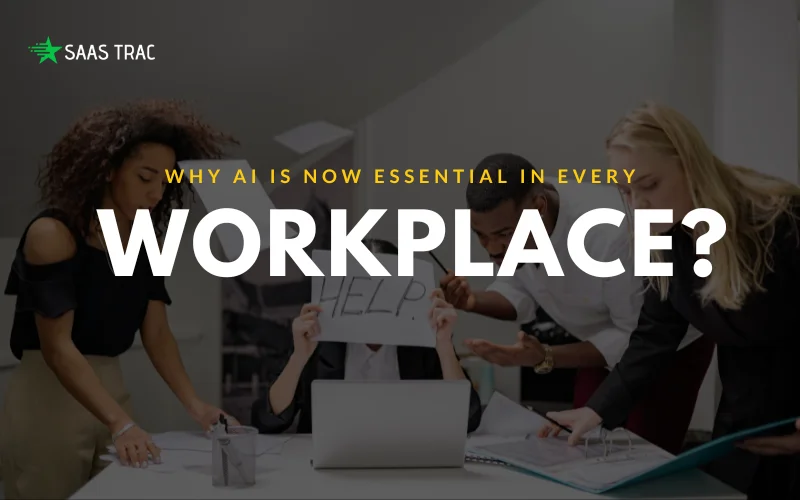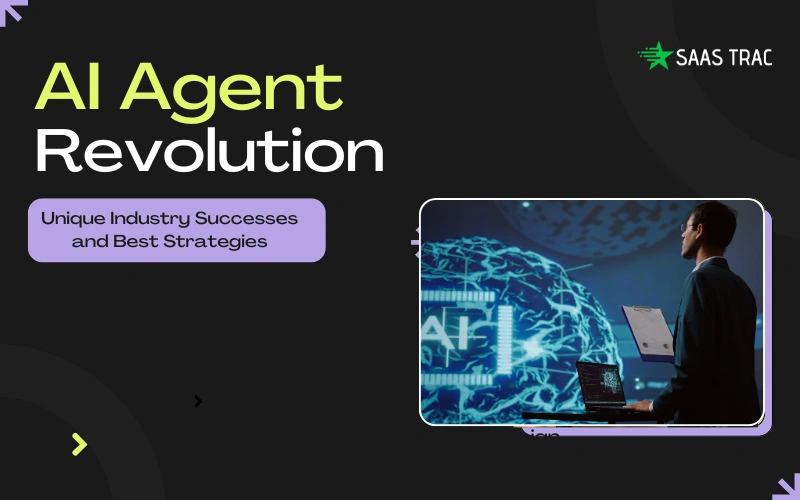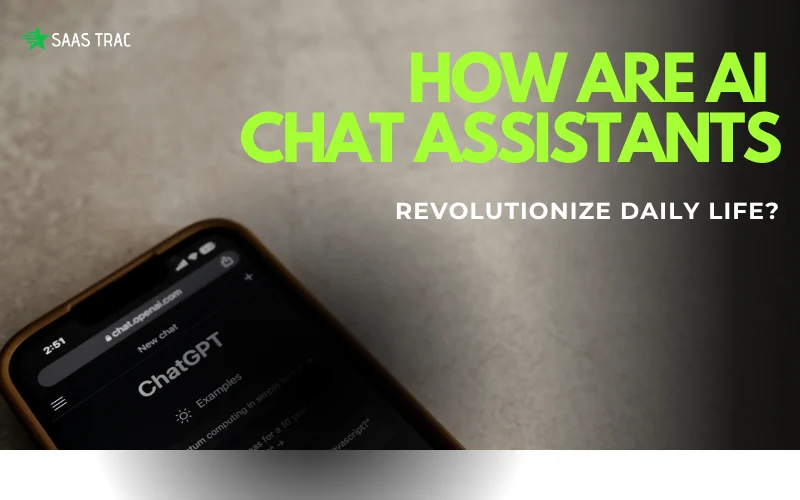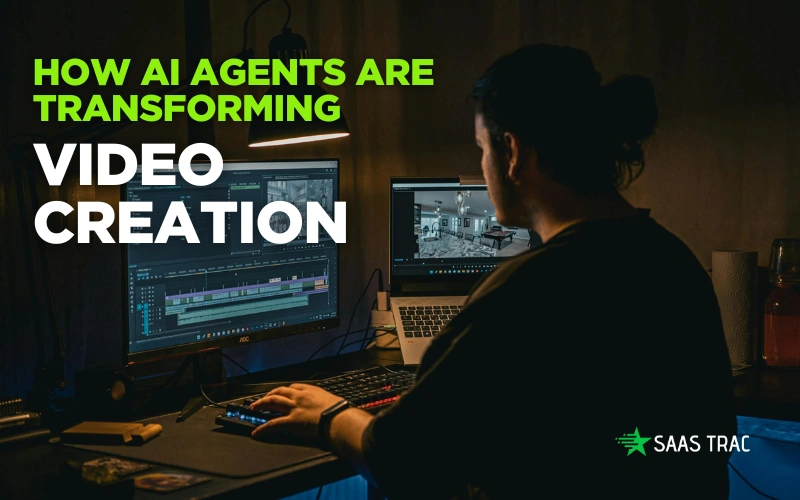Do you still imagine AI as some kind of futuristic robot? Well, let’s clarify this; it’s already on your desk.
And it is transforming today’s workplace. From automating day-to-day tasks to providing real-time insights, artificial intelligence is revolutionizing the way businesses think, operate, and succeed. Whether you’re in marketing, HR, finance, or logistics, AI is quietly transforming the way things get done behind the scenes. Importance of AI lies in this subtle, behind-the-scenes revolution that is enhancing workplace efficiency at scale.
And that’s the breakthrough: AI doesn’t replace humans, it enables them. While the machine does repetitive, data-intensive work, employees are free to do what they’re best at, whether it’s innovative thinking, problem-solving, or strategy.
In a marketplace where competitiveness equals staying ahead, embracing AI isn’t only intelligent, it’s imperative. In this blog, we will discuss the significance of AI, its influence on the modern workplace, and why work in the future is smarter, faster, and more responsive than ever. The importance of AI becomes even clearer when we consider how it enables smarter work, not just harder work.
Listen To The Podcast Now!
Why Is Artificial Intelligence Important In The Workplace?
Artificial intelligence is transforming how businesses operate, becoming an indispensable part of the modern workplace. Here’s why AI is increasingly important across industries and departments: The Importance of AI in this context goes beyond tech—it’s a business enabler.
-
AI Supports Growing Digital Complexity
Workplaces today deal with massive amounts of data and increasingly complex digital systems. AI helps manage this complexity by automating routine tasks and handling large data sets quickly and accurately, which would be impossible for humans to do alone. The importance of AI here lies in managing data at scale and speed.
-
AI Handles Repetitive Tasks Efficiently
AI takes over time-consuming, repetitive jobs like data entry or basic customer queries, freeing employees to focus on more creative and strategic work that requires human insight and innovation. AI becomes evident in how it liberates human talent from mundane tasks.
-
AI Delivers Faster, Smarter Decision-Making
By analyzing vast amounts of information instantly, AI uncovers trends and patterns that help managers and teams make better, data-driven decisions. It reduces errors and speeds up business responses. Importance of AI here lies in turning raw data into actionable insights with precision..
-
AI Boosts Productivity Across Departments
With AI automating mundane work and providing beneficial insights, teams can work more efficiently. It leads to increased output without sacrificing quality or overloading employees.
-
AI Gives Businesses A Competitive Edge
Speed and agility are essential in fast-changing markets. AI enables companies to adapt quickly to customer demands and market trends, helping them stay ahead of the competition. The importance of AI becomes crucial when competitiveness hinges on adaptability and innovation.
-
AI Is No Longer Optional, It’s Essential
As technology and data continue to grow, AI shifts from being just a helpful tool to a vital necessity. Companies that embrace AI gain the ability to innovate and grow sustainably in today’s fast-paced business environment.
Pros & Cons of AI In The Modern Workplace
Artificial intelligence is evolving how we work. From automating routine tasks to powering smarter decisions, AI in business brings serious advantages. But like any powerful tool, it comes with its trade-offs. Let’s break it down:
Pros of AI in the Workplace
Automation of Repetitive Tasks
AI handles tasks such as data entry, invoice generation, and scheduling without human input.
Example: In HR, chatbots now manage initial candidate screening, saving recruiters hours each week.
24/7 Operations
Machines don’t sleep. AI keeps systems running around the clock, boosting efficiency.
Example: E-commerce platforms use AI to provide instant customer support even at 3 AM.
Importance of AI in maintaining 24/7 operations is reshaping customer service expectations.
Faster Data Analysis & Reporting
AI sorts and analyzes massive datasets in seconds, turning numbers into insights.
Example: In finance, algorithms flag suspicious transactions, something that used to take days.
Improved Customer Experience
AI personalizes interactions, making users feel heard and valued.
Example: Retailers leverage AI to recommend products based on browsing history, increasing sales and satisfaction.
Cost Efficiency Over Time
Although the initial setup can be expensive, AI often reduces long-term costs by minimizing errors and manual labor.
Importance of AI in cost management helps future-proof operational budgets and scale growth efficiently.
Cons of AI in the Workplace
1. Job Displacement Concerns
AI can replace some roles, especially in repetitive or process-driven jobs, creating uncertainty for workers.
Example: In manufacturing, machines now handle basic assembly, reducing the need for human operators.
2. High Initial Investment
Implementing AI systems requires time, money, and training. Smaller businesses may struggle to keep up.
3. Data Privacy Risks
AI runs on data, and mishandling that data can lead to serious privacy issues.
Example: AI-driven hiring tools can unintentionally collect or misuse sensitive applicant information.
4. Bias in AI Algorithms
If the data used to train AI is biased, the decisions it makes will be too.
Example: Some facial recognition tools have shown lower accuracy for people with darker skin tones.
5. Dependency on Technology
As teams rely more on AI, they may lose critical thinking or problem-solving skills over time.
AI isn’t just a trend. It’s a tool with a significant impact. When used right, it boosts productivity, streamlines operations, and makes businesses smarter. But to truly benefit, companies must address their challenges head-on, ethically and strategically.
Key AI Capabilities Reshaping the Workplace
Ever wonder which AI tools are changing the game at work right now, not in the far-off future? Let’s break down the AI capabilities that are already transforming how we operate, collaborate, and innovate in the workplace. The importance of AI is best seen through these transformative capabilities.
Machine Learning
Machine learning uses data to recognize patterns and make intelligent decisions. You do not need any manual programming.
What it does best:
- Predicts customer behavior and buying trends
- Detects fraud and security threats in real-time
- Improves hiring outcomes by analyzing candidate fit
- Recommends personalized marketing campaigns
The importance of AI through ML is making real-time, data-backed decisions a norm across industries.
Natural Language Processing (NLP)
NLP allows AI to understand, process, and generate human language. It makes communication more seamless and efficient. Workplace wins:
- AI chatbots handle customer support with 24/7 precision
- Sentiment analysis gauges how customers feel
- NLP tools summarize emails and flag essential actions
- Real-time translation connects global teams
The importance of AI via NLP lies in removing communication barriers and enhancing engagement across languages.
Computer Vision
This tech enables AI to analyze images and visual data, bringing a whole new dimension to automation. Where it’s making waves:
- Identifies defects in manufacturing lines
- Enhances workplace safety
- Powers facial recognition
- Supports inventory tracking
Importance of AI in visual contexts ensures greater accuracy, safety, and control in physical environments.
Robotic Process Automation (RPA)
RPA mimics human actions to complete rule-based digital tasks across systems. Where it thrives:
- Processes invoices
- Updates CRM systems
- Manages payroll
- Handles compliance
Importance of AI becomes clear when RPA is used to eliminate repetitive digital tasks, boosting productivity.
Predictive Analytics
AI doesn’t just explain what happened, it predicts what’s coming. How it helps:
- Forecasts sales
- Anticipates churn
- Spots supply issues
- Informs strategy
The importance of AI lies in making planning proactive, not reactive.
Hybrid Intelligence
The most exciting evolution? AI that doesn’t replace people—it works with them. What it enables:
- Learns from humans
- Customizes support
- Shares institutional knowledge
- Scales decision-making
The importance of AI here is in amplifying human capabilities, not replacing them.
How To Prepare Your Workforce for an AI-Driven Future?
AI isn’t just changing the tools we use, it’s reshaping how we work. But here’s the real question: Is your team ready to thrive in this AI-powered world?
According to McKinsey, 87% of leaders admit their teams lack key skills for AI, yet fewer than 30% have a solid game plan. The future belongs to those who prepare, not panic.
1. Prioritize People Over Tech
Adopting AI isn’t just about upgrading your software, it’s about upskilling your people. Start by understanding where your team stands.
- Map current skills across roles
- Identify where the gaps lie
- Build role-specific learning journeys
It lets you target the right skills for the right people.
2. Build Skills That Matter
Focus on more than just technical know-how. The future workforce blends human strengths with machine intelligence. Help your team develop:
- Data literacy and analytics thinking
- Human-AI collaboration skills
- Critical thinking and ethical decision-making
- Flexibility in the face of constant change
Think of it as future-proofing your people.
3. Make Learning Accessible
Training shouldn’t feel like homework. Mix online tools with hands-on workshops and personalized learning tracks.
- Use real-life use cases to show relevance
- Let team members learn at their own pace
- Highlight how AI helps, not threatens, their roles
Bonus tip: Appoint “AI champions” in each team to keep the momentum going.
4. Shift the Culture, Not Just the Process
Skills won’t stick if the mindset doesn’t shift. Encourage a culture that’s curious, experimental, and open to change.
- Celebrate small wins with AI tools
- Make room for trial and error
- Promote teamwork across roles and departments
- Create a vibe where learning is cool, not a checkbox.
5. Lead the Way With Clarity and Confidence
Change starts at the top. Leaders need to set the tone not with hype, but with honest conversations.
- Be clear about what AI means for the company
- Acknowledge fears without sugarcoating
- Walk the talk by using AI tools yourself
- Check in regularly and listen to feedback
- Strong leadership bridges the gap between uncertainty and innovation.
The Bottom Line
AI isn’t just changing the workplace, it’s redefining it. From smarter workflows to faster decisions, it’s helping teams work more efficiently and creatively. As businesses face growing demands and digital complexity, embracing the benefits of AI isn’t optional anymore; it’s a strategic move. Importance of AI isn’t about hype, it’s about staying relevant, agile, and future-ready.
When used right, AI supports people, not replaces them. It clears the clutter, speeds up the grind, and makes space for what matters: innovation, collaboration, and growth. The future of work isn’t on the horizon, it’s already here. And AI is right at the center of it. Importance of AI has never been more relevant—now’s the time to lean in.







